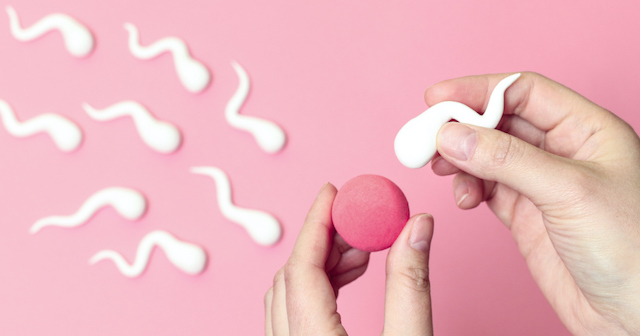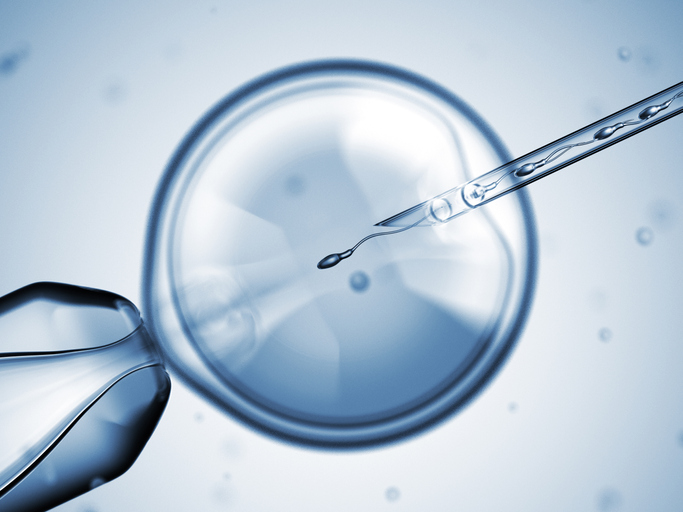Overview
Trying for a baby should be fun – not overshadowed by difficulties and frustration.
If you’re struggling to get pregnant after following all the usual ‘rules’, you may be starting to feel anxious about why it’s not working out for you. This can lead you to ask questions about past or current illnesses, or medical treatments, and to wonder whether they’re having an impact.
You’re certainly not alone if you’re having problems getting pregnant and you’re asking those questions – infertility affects millions of people worldwide.
In this article, we’ll look at underlying conditions, concerns and treatments that might make it more complicated to get pregnant, or be a potential cause of infertility.
Can chlamydia make you infertile?
Chlamydia is one of the most common sexually transmitted infections (STI). It’s spread through unprotected sex or contact with infected genital fluids (semen or vaginal fluid). It’s common to have chlamydia with or without symptoms (called a ‘silent infection’). Even so, chlamydia is easily diagnosed and treated, but it can lead to problems with infertility if it’s left untreated. It’s important to get tested and treated early – using a simple swab or urine test – to avoid complications.
- infertility in women: It’s possible for chlamydia to develop into pelvic inflammatory disease (PID) if it’s not properly treated. Both a silent infection and PID can result in scarring to the lining of the fallopian tubes, which can make it harder for eggs to pass through. The earlier chlamydia or PID are treated, the lower the risk of problems with infertility
- infertility in men: It’s much less common for chlamydia to affect fertility in men than in women. However, it is possible for the infection to spread to the testicles and to the passage that carries and then stores sperm from the testicles (epididymis). Though a rare condition, it can cause pain and swelling (epididymitis) and affect your sperm and fertility
Can ovarian cysts cause infertility?
Ovarian cysts are small, fluid-filled sacs that can form on the ovaries – two walnut-shaped organs on either side of the womb that release eggs and hormones for female reproduction. Most cysts are harmless and will go away by themselves, but they can be associated with other conditions that may result in reduced fertility. For example:
- endometriosis, a condition where the lining of the womb grows outside the uterus, causing blockages and scarring. It can also cause cysts that can become large and painful called endometriomas, which can affect fertility
- polycystic ovary syndrome (PCOS), a condition that affects how your ovaries work. It can cause small fluid-filled sacs to form within the ovaries – these are similar to cysts but are not actually cysts. They’re in fact follicles that don’t develop or release eggs properly, which can mean ovulation doesn’t happen and fertility is affected. It can also cause irregular periods and high levels of certain hormones
Do varicoceles cause infertility?
A varicocele is a collection of enlarged veins (blood vessels) that are usually found near the testicles, usually on the left side.
Varicoceles tend to be relatively harmless, but it’s important to get them checked out by your doctor to make sure what you can feel is not a different type of testicular lump. In some people, varicoceles can reduce sperm production, as well as sperm quality, which can both cause infertility. Even so, nearly two-thirds of men who have them can still get their partner pregnant.
Varicoceles can be removed by a procedure called an ablation, but it’s not usually recommended because it doesn’t seem to improve pregnancy rates. Even so, it’s best to see a doctor if you’re struggling to conceive as there may be other tests that are recommended.
Can mumps cause male infertility?
Mumps is an infectious condition that used to be common in children. More recently, its impact has been largely controlled thanks to the MMR (measles, mumps and rubella) vaccine. Although mumps can cause swelling to the glands, high temperature and joint pain, the condition itself is not usually serious and passes in a week or so.
Some men who get mumps experience pain and inflammation in the testicle (epididymo-orchitis) after an episode of mumps. This can affect your sperm count and quality, particularly in the short term. In some cases, it could affect your fertility in the future, especially if both testicles are affected.

Can cystic fibrosis cause infertility?
Cystic fibrosis is an inherited condition caused by a change in a gene that makes the body produce a sticky mucus that can block tubes and organs.
- male fertility: It’s possible for men with cystic fibrosis to father biological children but it’s nearly always achieved after fertility treatment or surgery. This is because the tube (or vas deferens) that connects the testes to the penis is either missing or blocked with mucus. That’s the passage used by sperm to reach the semen (cum) prior to ejaculation during sex. So, cystic fibrosis doesn’t actually affect your sperm count or its quality – it’s just that your sperm can’t get to where it needs to go to make pregnancy possible
- female fertility: It’s possible to produce healthy, fertile eggs if you have cystic fibrosis. As a result, many women with cystic fibrosis are able to conceive and deliver healthy babies without fertility treatment. That said, women with cystic fibrosis do tend to experience more fertility problems than other women. This is because the illness and weight loss that cystic fibrosis can cause can lead to irregular or absent periods
- secondly, cystic fibrosis can result in your body producing thicker vaginal mucus. This can make it more difficult or even prevent sperm from reaching your egg
You might be concerned about passing on the condition, so it’s worth asking about tests to check if your partner may also be a carrier of a cystic fibrosis gene.
Does chemo make you infertile?
Some chemotherapy medicines can cause both temporary and permanent infertility, depending on the type of treatment and the dosage. Your age and the type of cancer you have can also be factors.
-
female infertility: Temporary infertility is when your periods stop or become irregular during treatment, but go back to normal 6 to 12 months after you stop treatment. It’s important to note that even if your periods stop, you could still become pregnant because you may still be making and releasing eggs. Your doctor will likely recommend using contraception during chemo because treatment drugs can harm an unborn child
-
permanent infertility is caused when higher doses of chemotherapy drugs damage or destroy the eggs in your ovaries. It occurs more often in older women than younger women
-
chemotherapy can also result in early menopause (when your periods stop for good), which can also stop you getting pregnant naturally
-
male infertility: Chemotherapy can also affect male fertility. The chemotherapy drugs used are different but some can reduce the amount of sperm and testosterone you make. These changes can be temporary or more long term depending on factors like the dose and your age
Before starting treatment, ask your doctor whether your fertility may be affected. That way, you can discuss your options in advance. It may be possible to harvest and freeze your eggs or sperm sample for use at a late date via fertility treatments such as in vitro fertilisation (IVF) or artificial insemination.
When to speak to your doctor
If you’re struggling to get pregnant after a year of regular unprotected sex, or if you think any of these conditions or treatments could be affecting you, it’s best to speak with your doctor. They can work with you to try and identify why you might be having problems. Together, you can work out a plan to support your efforts to get pregnant.
Your health questions answered
Does the HPV vaccine cause infertility?
 Answered by: Dr Roger Henderson
Answered by: Dr Roger HendersonNo. The HPV vaccine has been used worldwide for many years in countries such as Australia, Canada, the UK, the US and most of western Europe, with more than 100 million people being vaccinated. A detailed analysis of studies by the World Health Organisation (WHO) looking at whether the vaccine has any impact on fertility has found that the available data does not support any association between HPV vaccination and either infertility or premature ovarian insufficiency.
Can herpes make you infertile?
 Answered by: Dr Roger Henderson
Answered by: Dr Roger HendersonNo. Although the symptoms of herpes may include sores or blisters around the genitals, these symptoms do not affect the reproductive organs. This means that having genital herpes does not affect your fertility. To help prevent any flare-up of your herpes when you are trying to get pregnant, or around the time of delivery to prevent spreading herpes to your newborn baby, talk to your doctor about taking antiviral tablets at this time as this is safe.
Key takeaways
- past illnesses don’t mean you won’t be able to start a family
- infertility can be complicated – often, no single cause can be found
- your medical history can be important when looking at the bigger picture
- make sure you talk to your doctor about fertility before undergoing cancer treatment
- some conditions and treatments can affect your ability to get pregnant without causing infertility






